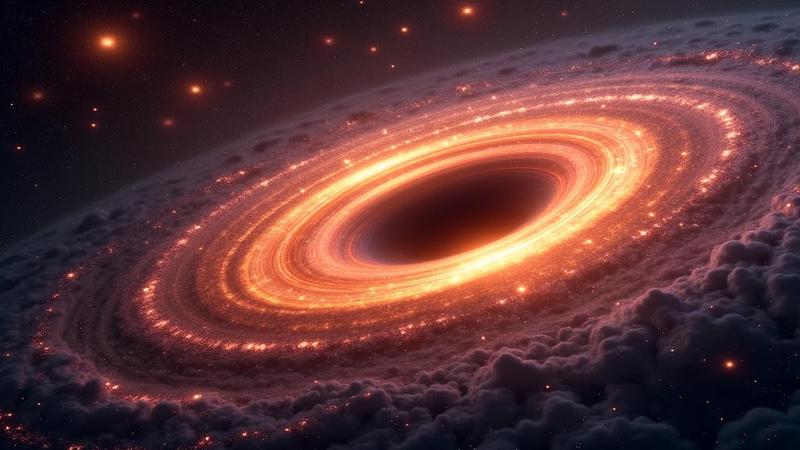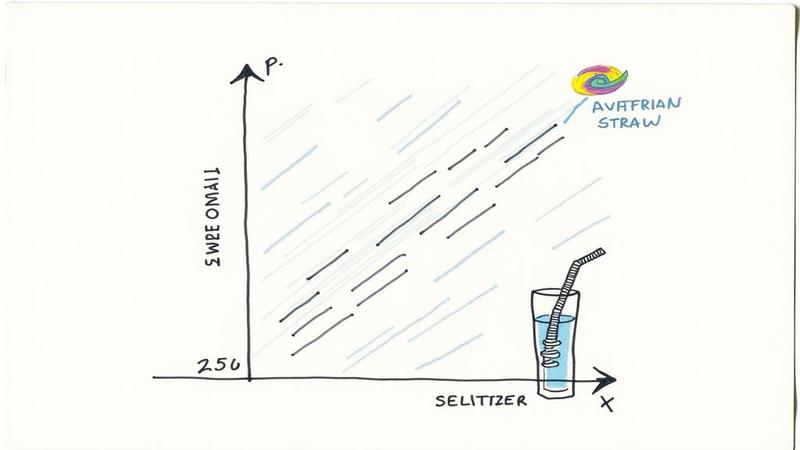Scientists Claim Black Holes Spit Out Dark Energy, Universe Politely Burps

The universe may have the hiccups again, and this time it’s not because someone told it the cosmological constant is just a vibe. It’s allegedly because black holes are spitting dark energy like cosmic soda fountains that majored in chaos.
This is not your uncle’s black hole, the one that swallows light and Thanksgiving politics. This is a black hole that inhales matter and exhales something that accelerates the universe, like a yoga instructor who found enlightenment and a leaf blower.
I’m Casey Mercer, and yes, I read the methods section until the error bars begged for mercy. The claim is bold, the equations are swole, and the p-values would like to phone a friend and a statistician with an umbrella.
Researchers propose that black holes are engines converting normal stuff into dark energy, solving so-called cosmic hiccups—those odd little acceleration twitches you get when spacetime drinks flat cola and pretends it’s champagne. The math waves from across the void and insists this is not a dare.
Picture an event horizon functioning as a vending machine that takes your baryons and dispenses non-refundable mystery fog. You don’t get your spiraling star back, but you do get a receipt reading “Thanks for your contribution to universal weirdness.”
If this mechanism works, it neatly tidies the budget for cosmic expansion like a CFO with a blender and an MBA from the Department of Unfathomable. It’s frugality, but with singularities.
Observationally, they point at supermassive black holes in old galaxies aging like fine cheese left on a rocket. They seem heavier than their lunches should allow, the way every conference cookie table seems to violate conservation of biscuits.
The team maps redshifts and brightnesses, then invites general relativity to the afterparty to sign off with a flourish. Relativity attends, leaves early, and texts “This is why we can’t have nice universes.”
As a metaphor, think sourdough starter: feed your black hole some matter, and the dough of spacetime rises until it’s trying to escape the bowl. Don’t punch down the universe. It resents that.
For readers asking what to do at home, do nothing, especially not with your sink, your blender, or a ‘DIY event horizon simulator’. If you create a singularity in your kitchen, your deposit is gone and your landlord will not accept cosmic expansion as wear and tear.
What about the hiccups? The data show a wobble—an acceleration spasm—like the cosmos tried to whistle and swallowed a galaxy instead. Scientists are calling it a “tension,” not because it’s dramatic, but because melodramatic is already taken by string theory.

The model says dark energy density grows as black holes mature, which is adorable in a horrifying way. Imagine grandpa’s retirement account paying out in extra universe, indexed to how many stars he ate.
Critics counter that it could be dust, calibration errors, or the classic “we asked the sky something and it lied.” I respect dust; it has thwarted more careers than Twitter.
Press offices translated the paper: “Black holes create energy.” Scientists replied, “No.” Press offices said, “Black holes create vibes.” Scientists replied, “Also no.” Press offices said, “Black holes are influencers,” and launched a hashtag.
A reasonable person asks, how would we test this? We watch galaxies like nosy neighbors measuring lawn growth, except the lawn is the metric tensor and the grass is a space-time siren that refuses to turn the music down.
Upcoming telescopes will sweep the sky for faint, sassy patterns. If the expansion curve does a little hop where black hole demographics say it should, that’s a point for Team Espresso Machine In The Void.
And because I have a lab notebook’s discipline, a note: dark energy is not “vibes.” It is, at cruel minimum, “vibes with units,” plus error bars thick enough to block the sun.
In the extended interview no one recorded, a representative black hole insisted it has never converted anything into anything. It then quietly converted the microphone stand, two chairs, and my sense of scale into a teachable moment.
Meanwhile, citizen scientists are shopping for tools to help them feel involved, which is adorable unless it’s my inbox. Someone tried to detect cosmic acceleration in their refrigerator light using a ‘pocket spectroscope keychain’, and now their leftovers experience time dilation.
If the claim holds, black holes aren’t just the universe’s dumpsters; they’re its industrial-scale baristas, frothing the vacuum until the latte art forms a spiral arm. Tip well: gravity remembers.
If it doesn’t hold, we’ve still learned something. We learned that when the universe hiccups, it does so in 4D, wearing a tuxedo, and asking for a glass of de Sitter.
As for me, I’ll call it a breakthrough when something breaks through the peer-review event horizon and survives. Until then, this is a tantalizing rattle in the cutlery drawer of cosmology.
In the worst case, the hiccup goes away when we hold our breath for 13.8 billion seconds and drink a glass of metrics upside down. In the best case, the universe burps, says “excuse me,” and accelerates into the distance like it just saw the bill.
